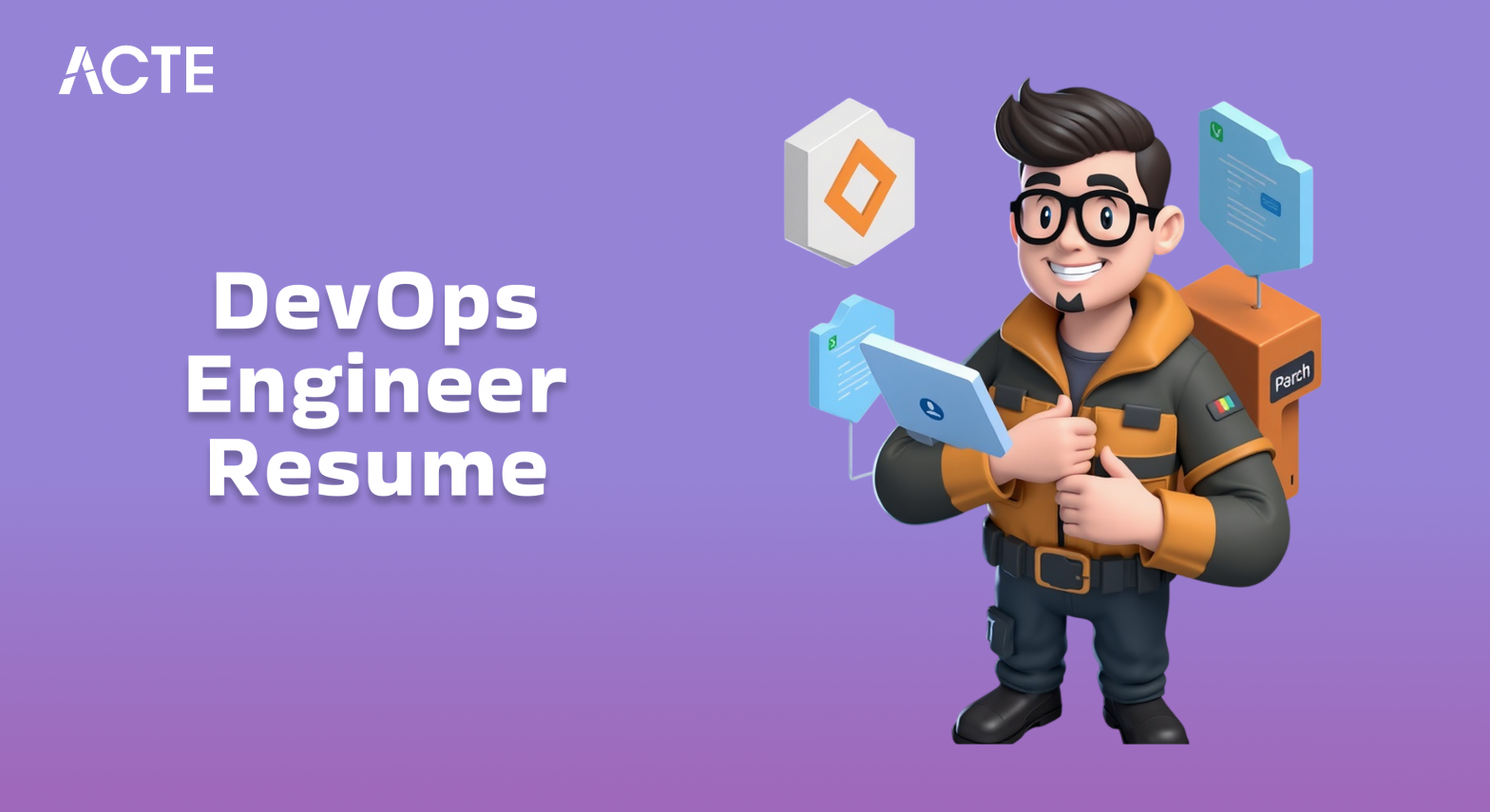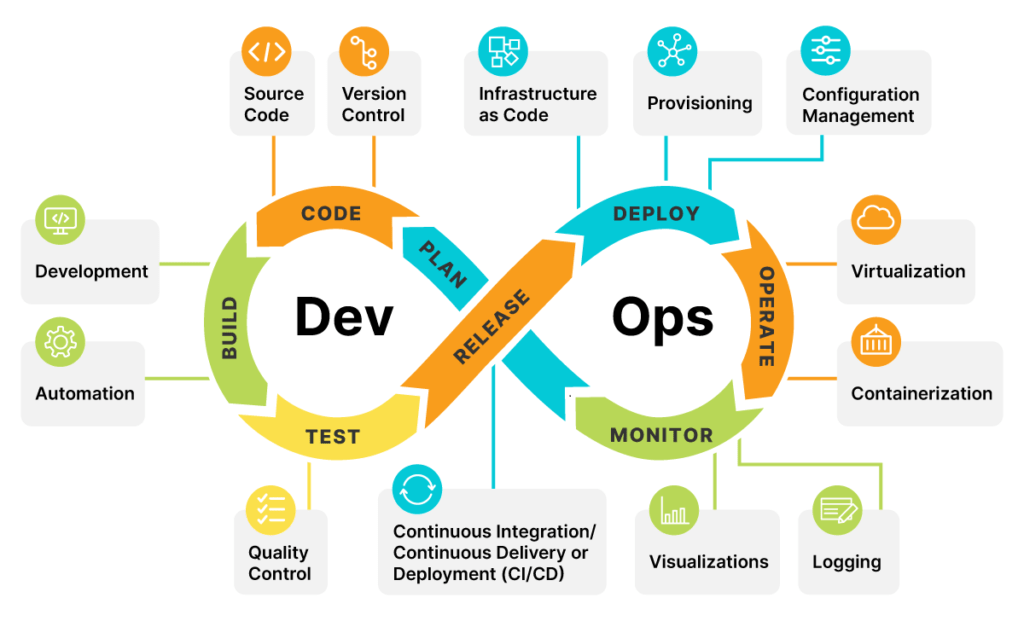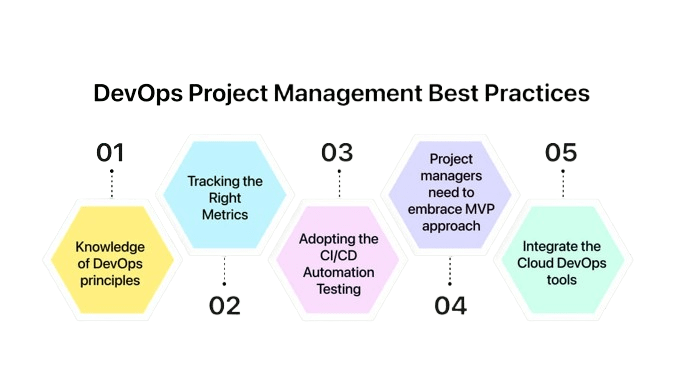
- Key Skills for DevOps Engineers
- Essential Sections in a DevOps Resume
- Crafting a Professional Summary
- Highlighting Technical Expertise
- Showcasing DevOps Projects and Experience
- Resume Formatting Tips for DevOps Engineers
- Common Mistakes to Avoid
- Conclusion
Key Skills for DevOps Engineers
DevOps engineers need a broad set of technical, soft, and problem-solving skills. Expertise in Git and platforms like GitHub, GitLab, Bitbucket. Experience with branching strategies (e.g., GitFlow, feature branching).Proficiency in tools like Jenkins, GitLab CI, CircleCI, Travis CI. Knowledge of automating testing, integration, and deployment pipelines. Hands-on experience with tools like Terraform, Ansible, Chef, Puppet. Familiarity with automating infrastructure provisioning and management. Experience with Docker and Kubernetes for building, deploying, and managing containerized applications. Knowledge of container registries like Docker Hub and private registries. Proficiency with cloud services like Devops Training , Microsoft Azure, Google Cloud. Experience with cloud infrastructure management (e.g., EC2, S3, RDS, GCP Compute Engine).Familiarity with tools like Prometheus, Grafana, Nagios, ELK Stack (Elasticsearch, Logstash, Kibana).Experience in setting up centralized logging and monitoring for applications and infrastructure. Understanding of networking concepts (DNS, HTTP, load balancing, firewalls).Experience with securing applications using encryption, IAM, VPNs, and firewalls. Expertise in scripting languages like Bash, Python, and Shell for automating tasks. Familiarity with automation tools and frameworks to streamline DevOps processes. Ability to collaborate with development and operations teams effectively. Experience with agile methodologies and versioned documentation.
Essential Sections in a DevOps Resume
A well-organized DevOps engineer resume should have the following sections:
- Header: Full name, phone number, professional email address, and LinkedIn profile (optional but recommended).If relevant, include your GitHub or personal website link.
- Professional Summary: A concise paragraph summarizing your experience, expertise, and key achievements in DevOps.
- Skills: A section highlighting your technical skills and tools you’re proficient in. Include soft skills, like communication and collaboration, if applicable.
- Professional Experience: List your work experience in reverse chronological order. Include the company name, your role, and dates of Devops Testing Strategy Guide. Focus on achievements, specific projects, and the tools you’ve used.
- Education: Include your degree(s), university name, and graduation year. If you’ve completed relevant certifications (e.g., AWS Certified DevOps Engineer), include them here.

- Certifications: List any relevant certifications like AWS Certified DevOps Engineer, Docker Certified Associate, or Google Professional Cloud DevOps Engineer.
- DevOps Projects (optional but recommended):Showcase personal or professional DevOps projects, such as building CI/CD pipelines or setting up automated testing. Highlight the tools and Debug Distributed Apps Using AWS X Ray used in each project.
- Awards and Achievements (optional):Any notable achievements in your career, such as recognition for successful project completions or certifications.
- Professional Affiliations (optional):Include memberships in relevant professional organizations like DevOps Institute, Agile Alliance, or similar groups.
- Languages (optional):If you’re proficient in multiple languages (e.g., English, Spanish), include them to highlight your communication skills, especially for roles in multinational teams.
- Volunteer Experience (optional):If applicable, mention any volunteer work that showcases transferable skills like project management, collaboration, or leadership.
Unlock your potential in Devops with this Devops Online Training .
Crafting a Professional Summary
The professional summary section is the first thing hiring managers will read, so it’s crucial to make it impactful. Aim for a 3-5 sentence summary, highlighting your core DevOps skills, experience, and career aspirations. Briefly mention your years of experience, industries worked in, and key DevOps technologies used (e.g., “5+ years of experience in Devops Training , specializing in CI/CD pipelines and cloud automation using AWS and Docker”). Mention any significant accomplishments like optimizing infrastructure, reducing deployment times, or improving system uptime. Tailor the summary for each job application by focusing on the skills and tools relevant to the position you’re applying for. Be sure to emphasize your ability to work in fast-paced environments and handle complex challenges. Showcase your enthusiasm for continuous learning and your desire to drive innovation. Highlight your adaptability and willingness to embrace new technologies to meet evolving business needs.
Example: Results-driven DevOps engineer with 4+ years of experience in automating cloud infrastructure, CI/CD pipelines, and containerization. Expertise in AWS, Docker, Kubernetes, and Terraform. Successfully led the migration of legacy applications to cloud environments, improving deployment efficiency by 40%. Passionate about driving operational excellence and improving system reliability. Proven track record in optimizing cloud environments for scalability and cost efficiency, reducing infrastructure costs by 30%. Eager to leverage my skills in cloud automation and DevOps best practices to contribute to a forward-thinking, growth-oriented team.
Learn the fundamentals of Devops with this Devops Online Training.
Highlighting Technical Expertise
Under your Skills section, highlight technical expertise using bullet points to make it easy for hiring managers to quickly scan your core competencies. You can also group your skills into categories for better clarity. This helps employers easily identify your strengths and see how your skills align with the role. For example, categorize your expertise into key areas such as cloud platforms, automation, containerization, and security. Grouping these skills not only makes your resume more organized but also emphasizes your versatility and ability to work with a wide range of Automated Devops Pipeline for Agile Teams. Additionally, consider showcasing your proficiency with specific tools, languages, and frameworks that are relevant to the job position, further reinforcing your suitability for the role. This structured approach ensures that your technical skills are clear and easy to digest.
Example:
- Cloud Platforms: AWS (EC2, S3, RDS), Google Cloud, Microsoft Azure
- Automation Tools: Jenkins, GitLab CI, CircleCI, Ansible, Terraform
- Containerization and Orchestration: Docker, Kubernetes, OpenShift Scripting Languages: Python, Bash, Shell
- Monitoring and Logging: Prometheus, Grafana, ELK Stack, Nagios Version Control: Git, GitHub, GitLab, Bitbucket
- Databases: MySQL, PostgreSQL, MongoDB, Redis By organizing your skills in this manner, you present a comprehensive, easy-to-scan list that showcases your depth of experience in each domain.
Showcasing DevOps Projects and Experience
In the Professional Experience section, emphasize specific projects where you applied DevOps practices, focusing on:
- CI/CD Pipelines: Describe the pipelines you’ve built or maintained, tools used (e.g., Jenkins, CircleCI), and how they improved the software delivery process.
- Cloud Automation: Highlight any cloud-related automation you’ve implemented (e.g., using Terraform to provision infrastructure on AWS, managing EC2 instances, deploying applications with Kubernetes).
- Performance Optimization: Share your achievements in improving system performance, such as reducing deployment times, improving system reliability, or automating server provisioning.
- Collaboration and Communication: DevOps engineers need strong communication and collaboration skills. Mention your experience working with development, QA, and operations teams, and how you facilitated collaboration using tools like Best Devops Monitoring Tools Practices 2025, Jira, and Confluence.
- Security and Compliance: Highlight any security practices or compliance measures you’ve incorporated into the DevOps pipeline, such as automated vulnerability scans, integrating security tools (e.g., Snyk, Aqua Security), or ensuring compliance with regulations (e.g., GDPR, HIPAA).
- Cost Optimization: Discuss how you optimized cloud or infrastructure costs, including rightsizing resources, managing budgets, or implementing cost-monitoring tools like AWS Cost Explorer or CloudHealth.

- Disaster Recovery and High Availability: Share your work on ensuring disaster recovery, high availability, and fault tolerance in infrastructure. For example, setting up multi-region deployments in AWS or configuring Kubernetes clusters to ensure 24/7 uptime.
- Monitoring and Logging Setup: Detail your experience with setting up and maintaining centralized monitoring and logging tools (e.g., Prometheus, Grafana, ELK Stack), ensuring quick issue detection and resolution.
- Infrastructure as Code (IaC) Best Practices: Emphasize your experience implementing IaC using tools like Terraform, Ansible, or CloudFormation, showcasing your ability to automate the setup and scaling of infrastructure.
- Automation and Self-Healing Systems: Describe any self-healing systems or automation processes you’ve built (e.g., auto-scaling groups, Devops Engineer vs Cloud Engineer from failures, or automatic patching/upgrades) to minimize human intervention and improve operational efficiency.
- Implemented a full CI/CD pipeline using Jenkins and AWS CodeDeploy, reducing deployment times by 50%.
- Automated cloud infrastructure provisioning with Terraform, cutting manual setup time from hours to minutes.
- Optimized system performance by migrating on-prem applications to AWS, resulting in a 40% reduction in hosting costs.
- Overloading with Technical Jargon: While technical skills are essential, make sure your resume is readable. Avoid overwhelming the reader with too much jargon or abbreviations that may confuse non-technical recruiters.
- Including Irrelevant Information: Stick to information relevant to the DevOps role. Don’t include outdated or unrelated experience, especially if it doesn’t directly relate to the skills the employer is looking for.
- Lack of Focus on Achievements: Mastering Linux for Devops of just listing responsibilities, focus on what you accomplished in each role. Show the impact you had on the organization by quantifying achievements.
- Inconsistent Formatting: Ensure that your resume is consistent in style, fonts, and structure. Inconsistent formatting can make your resume look unprofessional.
- Neglecting Soft Skills: DevOps engineers are often required to work closely with cross-functional teams. Highlight your communication, collaboration, and problem-solving skills, as these are essential for success in a DevOps role.
Example:
Ready to excel in Devops? Enroll in ACTE’s Devops Master Program Training Course and begin your journey today!
Resume Formatting Tips for DevOps Engineers
Use a clean, professional layout with clear section headings and bullet points. Avoid using excessive fonts or colors that distract from the content. Focus on action verbs like “Implemented,” “Automated,” “Optimized,” and “Managed” to convey your impact. Whenever possible, quantify your achievements to showcase your impact (e.g., “Improved system uptime by 25%”). Customize your resume for each job application by aligning your skills and experience with the job description. Highlight the tools, technologies, and practices the employer is seeking. Use relevant keywords from the job posting to pass through Applicant Tracking Systems (ATS). Docker Compose for Multi Container Appsincludes tools, technologies, and methodologies (e.g., AWS, Jenkins, CI/CD).Additionally, keep your formatting consistent throughout your resume, including the font style and size, margins, and line spacing. Avoid unnecessary graphics or design elements that can clutter the document and detract from your experience. Use concise language, keeping your descriptions clear and impactful to ensure the hiring manager can quickly.
Boost your chances in Devops interviews by checking out our blog on Devops Interview Questions and Answers!
Common Mistakes to Avoid
Conclusion
A well-crafted DevOps engineer resume is essential for showcasing your expertise, achievements, and technical skills. By focusing on key areas such as version control, CI/CD, cloud platforms, containerization, and automation, you can create a resume that stands out to hiring managers. Highlighting your technical proficiency, hands-on experience with Devops Training , and the ability to collaborate effectively with cross-functional teams will demonstrate your value to potential employers.Remember, the goal is not only to list your skills but also to show how you have applied them to achieve real-world results. Quantify your achievements, tailor your resume to the job you’re applying for, and avoid common pitfalls like overloading with jargon or neglecting soft skills. By following these guidelines and formatting tips, you’ll increase your chances of landing an interview and advancing your career in the fast-paced field of DevOps.





